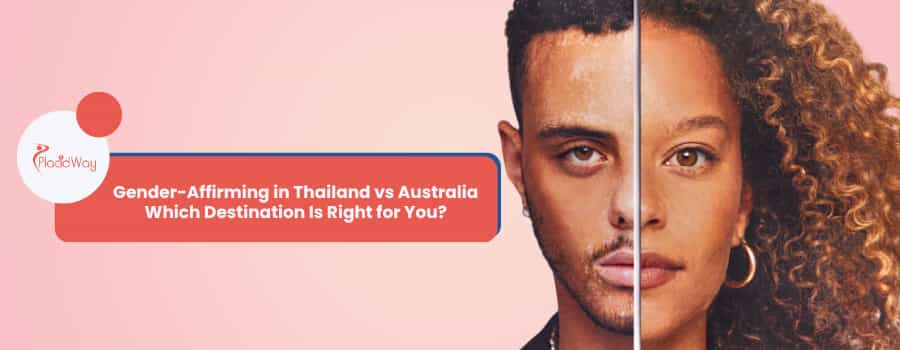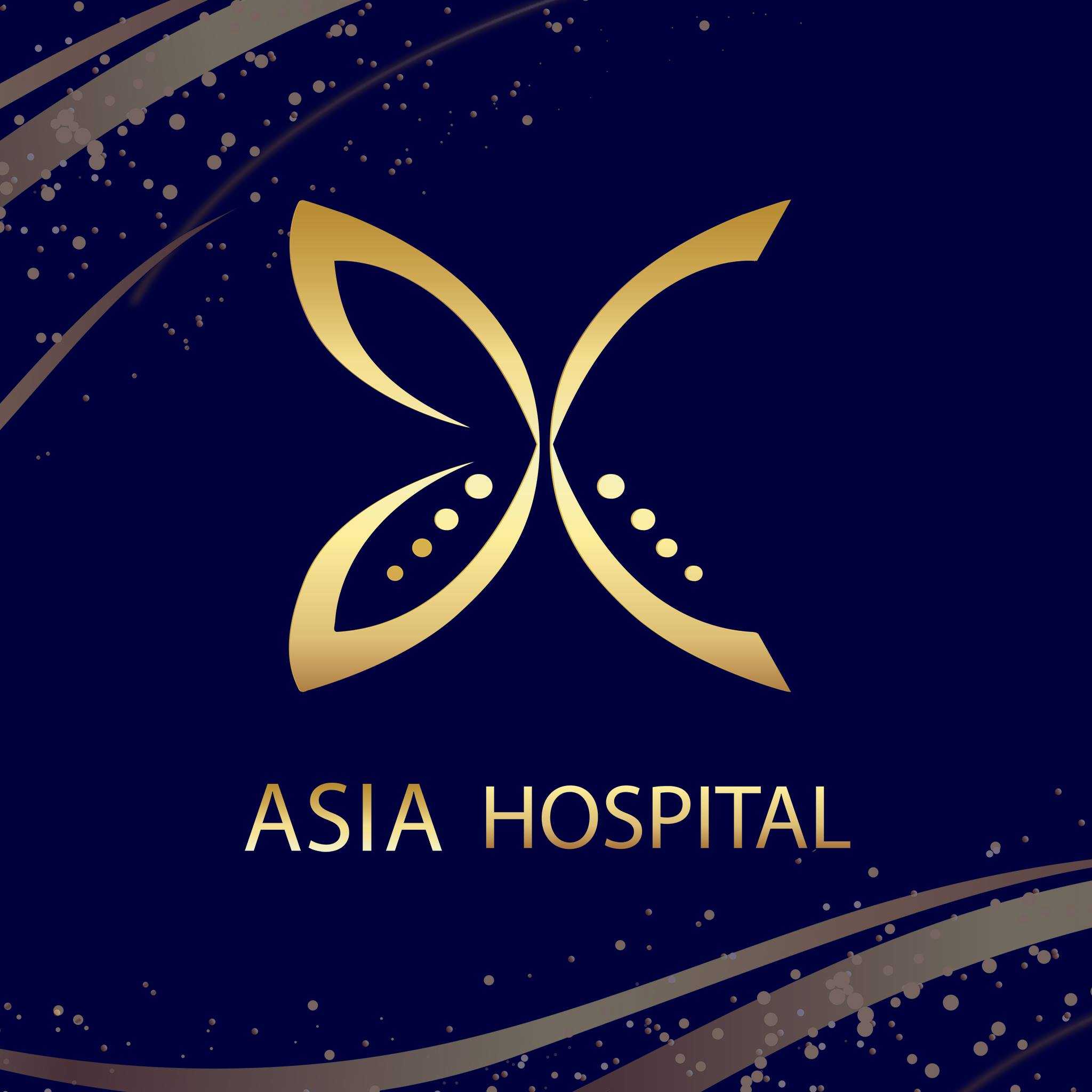
Choosing a destination for gender-affirming care is a profoundly personal and significant decision, requiring careful consideration of medical excellence, cost-effectiveness, legal frameworks, and societal acceptance. For transgender individuals worldwide, Thailand and Australia have emerged as leading destinations, each offering distinct advantages for those seeking to align their physical appearance with their gender identity. This in-depth guide aims to provide a clear, actionable comparison, empowering you to make an informed choice for your unique transition journey.
Gender-Affirming Surgery Options - Thailand or Australia?
Both Thailand and Australia offer world-class medical facilities and highly skilled surgeons for a range of gender-affirming procedures. Thailand has long been recognized as a global hub for gender confirmation surgery (GCS), drawing international patients with its specialized clinics, extensive experience, and competitive pricing for procedures like vaginoplasty (MTF bottom surgery) and phalloplasty (FTM bottom surgery). It's also a popular choice for facial feminization surgery (FFS) and top surgery (mastectomy or breast augmentation).
Australia, on the other hand, provides a robust, regulated healthcare system with strong ethical guidelines and integrated psychological support. While costs can be significantly higher and wait times longer for Australian residents, the benefits include localized aftercare, clearer legal recognition processes, and the comfort of a familiar cultural environment for domestic patients. For international patients considering Australia, private options exist, but they come with a premium.
Understanding the nuances of each country's offering is critical for making a decision that aligns with your medical needs, financial capabilities, and personal preferences for your gender transition journey.
Gender-Affirming Care in Thailand vs. Australia Comparison Table
Core Strengths - Gender-Affirming Healthcare in Thailand and Australia
Thailand's Strengths in Transgender Healthcare
Thailand stands as a global leader in gender-affirming surgery, primarily due to its highly specialized surgeons who have performed thousands of procedures over decades. The country's medical tourism infrastructure is exceptionally well-developed, offering comprehensive packages that often include accommodation, transportation, and personalized patient coordination. Clinics in bustling cities like Bangkok and Phuket are renowned for advanced surgical techniques in MTF vaginoplasty, FTM phalloplasty, and facial feminization surgery (FFS) in Thailand, often at a fraction of Western costs.
The efficiency of the Thai healthcare system also means significantly shorter wait times for procedures, a critical factor for many patients. Furthermore, the cultural acceptance of transgender individuals, particularly "Kathoey" (transgender women), contributes to a supportive environment for many undergoing transition. The focus on patient privacy and discretion is also a key attraction for international clients seeking gender confirmation surgery Thailand.
Australia's Strengths in Gender Transition Services
Australia boasts a highly regulated and high-quality healthcare system, providing a robust framework for gender-affirming care. For Australian citizens and residents, the ability to access integrated care, including mental health support, hormone therapy, and surgical interventions, within a familiar system is a major advantage. The legal landscape in Australia is progressively affirming, with many states and territories allowing legal gender recognition without requiring surgical intervention.
While costs are higher and wait times can be extensive, particularly for public services, the assurance of consistent, long-term follow-up care and the availability of Medicare rebates (for eligible procedures and residents) can make it a preferred choice for those living in the country. Australian surgeons are highly trained, adhering to strict professional standards, and the emphasis on comprehensive psychological assessment before surgery ensures patients are well-prepared for their journey. For international patients seeking gender-affirming surgery in Australia, private clinics offer options, albeit at premium rates.
Gender Affirming Surgery in Thailand - Benefits and Drawbacks
Pros of Gender Affirming Care in Thailand
- Significant Cost Savings: Gender reassignment surgery cost in Thailand is often 50-70% less than in Western countries, including the USA and Australia. This makes procedures like `phalloplasty Thailand price` or `vaginoplasty cost Thailand` more accessible.
- World-Renowned Surgeons & Specialization: Many Thai surgeons are international pioneers in gender-affirming surgery, with decades of experience and a high volume of procedures. Their expertise in specific techniques (e.g., non-penile inversion vaginoplasty) is globally recognized.
- Shorter Wait Times: Unlike the extensive `gender reassignment surgery Australia wait list`, appointments and surgeries can often be scheduled within weeks or months.
- Comprehensive Packages: Many clinics offer all-inclusive packages covering surgery, hospital stay, medications, airport transfers, and sometimes accommodation, simplifying the patient journey.
- Privacy and Discretion: Thailand's medical tourism industry is adept at providing a discreet and private experience for international patients.
- Advanced Techniques: Access to cutting-edge surgical techniques and technology, particularly for complex procedures, is a hallmark of top Thai clinics.
Cons of Gender Affirming Care in Thailand
- Travel Distance & Logistics: Long international flights and navigating a different culture can be challenging, especially post-surgery.
- Limited Localized Aftercare: While clinics provide excellent immediate post-op care, long-term follow-up and support once back in your home country might require careful planning and coordination with local providers.
- Language Barrier (outside clinics): While top clinics have English-speaking staff, daily interactions outside the medical setting may present a language barrier.
- Varying Quality: The popularity of `transgender surgery Thailand` means there's a wide range of clinics; thorough vetting is essential to ensure high standards.
- Legal Recognition: Thailand’s legal framework for gender recognition is less developed than Australia’s, potentially causing issues with documentation if returning to a country with strict requirements for surgical proof.
Gender Affirming Healthcare in Australia - Advantages and Challenges
Pros of Gender Affirming Care in Australia
- Regulated & High-Quality Healthcare: Australia’s medical system is highly regulated, ensuring stringent safety and ethical standards for `transgender healthcare Australia`.
- Integrated Aftercare & Support: Access to comprehensive, long-term post-operative care, mental health support, and hormone therapy within the local healthcare system.
- Medicare & Private Insurance Coverage: For Australian residents, some aspects of `gender transition services Australia`, including consultations and certain surgical costs, may be partially covered by Medicare or private health insurance, significantly reducing out-of-pocket expenses for eligible patients.
- Clear Legal Frameworks: Progressive laws in many states/territories allow for legal gender recognition without mandatory surgery, making the process smoother for many.
- Cultural Familiarity & Proximity: For Australian patients, undergoing care domestically eliminates the challenges of international travel, language barriers, and cultural adjustment.
- Robust Psychological Support: A strong emphasis on mental health assessment and ongoing psychological support throughout the transition process.
Cons of Gender Affirming Care in Australia
- Significantly Higher Costs: The `gender reassignment surgery Australia price` is among the highest globally, often making it unaffordable without significant insurance or personal savings.
- Long Wait Times: Accessing public gender clinics and surgeons often involves wait lists spanning months to several years, impacting the timeline for transition. This applies to `Australia gender clinic wait times` and public surgical lists.
- Fewer Specialized Surgeons: While highly skilled, there are fewer surgeons in Australia with a sole, extensive specialization in complex gender-affirming procedures like `phalloplasty Australia options` compared to Thailand.
- Limited Options for International Patients: The system is primarily geared towards residents. International patients face high costs and complex visa hurdles, making `medical tourism gender affirmation Australia` less common.
- Requires Multiple Referrals: The process typically involves multiple assessments and letters of support from mental health professionals, which can add to the timeline and cost.
The Patient Journey - What to Expect for Gender-Affirming Surgery
The Thailand Experience
In Thailand, the patient journey for gender-affirming care is designed for efficiency and convenience, especially for international patients. Typically, it begins with remote consultations and sending medical records. Once a treatment plan is established, patients travel to Thailand for pre-operative assessments (often including psychological evaluations), the surgical procedure, and an initial recovery period. The `post-operative care gender-affirming surgery` in Thailand is usually hospital-based for several days to weeks, ensuring close monitoring and support.
Many clinics offer packages that include local transportation, accommodation near the clinic, and translators, streamlining the process. After the initial recovery, patients are advised on self-care for their return journey. Follow-up is often handled remotely, with clinics providing detailed reports for local doctors, or patients may choose to return for future check-ups.
The Australia Experience
The Australian patient journey is generally more structured and integrated into the national healthcare system. It often begins with a general practitioner (GP) referral to a gender clinic or specialists. Patients typically undergo extensive psychological assessments and may require multiple letters of support from mental health professionals before being deemed eligible for surgery.
Wait times for consultations and surgery can be substantial, particularly within the public system. Once approved, the surgical procedure is performed in accredited hospitals. `post-operative care gender-affirming surgery Australia` is usually comprehensive, with access to local allied health professionals (physiotherapists, nurses, psychologists) for ongoing rehabilitation and support. Long-term follow-up and hormone therapy management are seamlessly integrated, providing continuous care within a familiar system.
Legal and Ethical Considerations for Gender Affirmation
The legal and ethical landscapes surrounding gender-affirming care differ significantly between Thailand and Australia. In Thailand, while the medical community is highly advanced in performing gender-affirming surgeries, the legal recognition of gender identity is still evolving. Currently, Thai law does not allow transgender individuals to change their legal gender on official documents, even after undergoing gender confirmation surgery. This can pose challenges for individuals returning to countries where legal recognition of their affirmed gender is tied to surgical proof.
Australia, conversely, has made significant strides in legal gender recognition. Many Australian states and territories allow individuals to update their legal gender on birth certificates and other documents without requiring any surgical intervention, based on self-identification and a supporting statement from a doctor or psychologist. The medical community operates under strong ethical guidelines, with an emphasis on informed consent, patient autonomy, and a multidisciplinary approach to care. This provides a more consistent and affirming legal environment for transgender individuals throughout their transition.
Patients considering either country must understand these differences, especially regarding how their home country's laws will recognize their gender affirmation after treatment abroad. PlacidWay assists patients in navigating these complex considerations, offering guidance to ensure a smooth transition not just physically, but also legally and socially.
Real Stories from Transgender Patients
Alex, USA (MTF Vaginoplasty in Thailand)
"Choosing Thailand for my vaginoplasty was the best decision. The expertise of Dr. Suporn and his team was unparalleled, and the cost was truly manageable. I felt respected and received exceptional care throughout my stay. I'm now living authentically and confidently."
Jamie & Maria, Australia (FTM Top Surgery in Australia)
"Jamie had his top surgery here in Sydney. While we waited a while, the peace of mind knowing he had local aftercare and the option for Medicare rebates was invaluable. His surgeon was fantastic, and the support from the gender clinic was comprehensive. Worth the wait for local care."
Chloe, Canada (FFS in Thailand)
"My facial feminization surgery in Thailand transformed my confidence. The clinic was incredibly professional, and the results exceeded my expectations. Even with travel, the total cost was far less than I'd pay back home. I felt truly seen and cared for during my `gender confirmation surgery Thailand` journey."
Liam, New Zealand (Metoidioplasty in Australia)
"As an NZ citizen, I was able to access care in Australia for my metoidioplasty. The process was thorough, with excellent psychological support pre- and post-op. It was a long journey, but having local access to my surgical team and mental health professionals made a significant difference. It’s important to research `transgender support groups` during this time."
Frequently Asked Questions About Gender-Affirming Care
Is gender-affirming surgery safe in Thailand?
Yes, many clinics in Thailand specializing in gender-affirming surgery adhere to international medical standards and are highly reputable. They employ experienced surgeons and utilize modern facilities. It's crucial to research and choose accredited clinics with transparent success rates and patient testimonials to ensure safety and quality. PlacidWay helps identify reputable clinics.
What is the average cost of FTM top surgery in Australia?
The cost of FTM top surgery in Australia can range significantly, typically between AUD $10,000 to AUD $20,000 or more, depending on the surgeon, clinic fees, and whether it includes anaesthetist and hospital costs. This is often considerably higher than similar procedures in Thailand, though Medicare rebates may apply for eligible Australian residents, reducing the out-of-pocket expense.
How long are wait times for MTF bottom surgery in Thailand?
Wait times for MTF bottom surgery (vaginoplasty) in Thailand are generally much shorter compared to many Western countries, often ranging from a few weeks to a few months. This efficiency is due to a high volume of specialized surgeons and dedicated clinics focusing on international patients, making `MTF surgery Thailand` an attractive option for many.
Do I need a referral for gender-affirming care in Australia?
In Australia, accessing gender-affirming care typically requires referrals. For surgical interventions, you will likely need assessments and letters of support from mental health professionals (psychiatrists or psychologists) specializing in gender identity, confirming the diagnosis of gender dysphoria and readiness for surgery. A GP referral is often the first step to access these specialists, contributing to `Australia gender clinic wait times`.
Can I get insurance coverage for gender reassignment surgery in Thailand?
Generally, international private health insurance policies may or may not cover gender reassignment surgery performed in Thailand. It is essential to contact your insurance provider directly to understand your specific policy's terms regarding overseas medical procedures and gender-affirming care. Most patients traveling to Thailand for `gender confirmation surgery cost Thailand` self-fund their treatment.
What kind of aftercare is provided in both countries?
In Thailand, clinics typically provide comprehensive post-operative care during your stay, including nursing support, medication, and follow-up consultations with the surgeon. Once you return home, ongoing aftercare (e.g., dilating for vaginoplasty, wound care) is usually managed by the patient or coordinated with their local healthcare provider. In Australia, aftercare is integrated into the local healthcare system, with post-operative check-ups, specialist referrals, and long-term support more readily available through local GPs and gender clinics.
Are there options for non-binary individuals seeking gender-affirming procedures?
Yes, both Thailand and Australia offer a range of gender-affirming procedures suitable for non-binary individuals. These can include top surgery (breast reduction or masculinizing chest surgery), facial feminization or masculinization, voice modification, or specific body contouring procedures that align with an individual's gender identity, without necessarily undergoing full genital reconstruction. It is important to discuss your specific goals with your chosen medical team in either `transgender surgery Thailand` or `transgender surgery Australia`.
What are the visa requirements for medical tourism in Thailand for gender-affirming surgery?
For gender-affirming surgery in Thailand, most international patients can enter on a tourist visa for a stay of typically 30-60 days, which is usually sufficient for common procedures and initial recovery. For longer stays, it may be necessary to apply for a medical visa (non-immigrant O) in advance through the Thai embassy or consulate in your home country. Always check the latest requirements based on your nationality and consult PlacidWay for assistance.
How important is language for transgender surgery in Australia?
In Australia, English is the primary language of healthcare. All medical professionals, including surgeons, nurses, and support staff, will communicate in English. For individuals whose first language is not English, interpreter services are generally available and can be crucial for ensuring clear communication and informed consent throughout the `gender affirming healthcare Australia` treatment process.
What psychological support is available for gender transition in both countries?
In Australia, psychological support is a cornerstone of `gender transition services Australia`, with access to specialized psychologists and psychiatrists for assessment, therapy, and ongoing mental health support throughout the transition journey. In Thailand, while pre-surgical psychological evaluations are standard, long-term psychological support after returning home would typically need to be arranged in the patient's home country. Many Thai clinics offer initial counselling and support as part of their `gender affirming care packages`.
Ready to Take the Next Step on Your Gender Affirmation Journey?
The journey of gender affirmation is deeply personal and complex. Whether you are leaning towards the specialized expertise and cost-effectiveness of `gender-affirming care Thailand` or the integrated, regulated system of `gender-affirming care Australia`, PlacidWay is here to support you.
We specialize in connecting transgender individuals with world-class, pre-vetted clinics and surgeons globally. Our dedicated Care Team offers free, no-obligation consultations to help you compare personalized treatment packages, understand transparent pricing for `gender reassignment surgery cost`, navigate legal considerations, and answer all your specific questions. Let us handle the complexities of planning, so you can focus on achieving your authentic self.




.png)



.png)
.png)








Share this listing